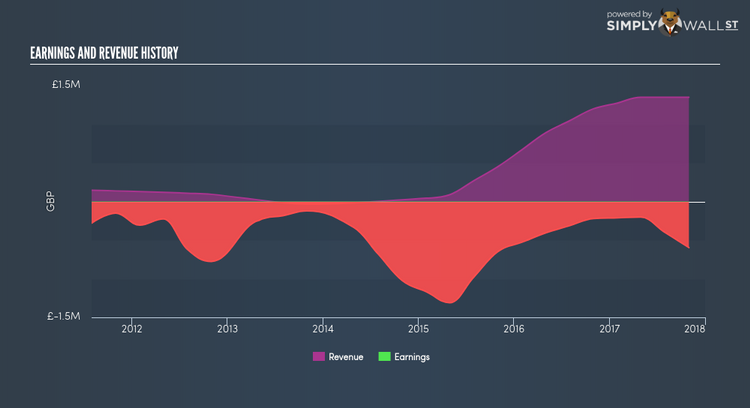Does Plutus PowerGen plc (LON:PPG) Go Up With The Market?

For Plutus PowerGen plc’s (AIM:PPG) shareholders, and also potential investors in the stock, understanding how the stock’s risk and return characteristics can impact your portfolio is important. PPG is exposed to market-wide risk, which arises from investing in the stock market. This risk reflects changes in economic and political factors that affects all stocks, and is measured by its beta. Not every stock is exposed to the same level of market risk, and the market as a whole represents a beta value of one. Any stock with a beta of greater than one is considered more volatile than the market, and those with a beta less than one is generally less volatile.
Check out our latest analysis for Plutus PowerGen
What does PPG’s beta value mean?
With a five-year beta of 0.24, Plutus PowerGen appears to be a less volatile company compared to the rest of the market. This means that the change in PPG’s value, whether it goes up or down, will be of a smaller degree than the change in value of the entire stock market index. Based on this beta value, PPG appears to be a stock that an investor with a high-beta portfolio would look for to reduce risk exposure to the market.
How does PPG’s size and industry impact its risk?
With a market cap of UK£11.40M, PPG falls within the small-cap spectrum of stocks, which are found to experience higher relative risk compared to larger companies. However, PPG operates in the renewable energy industry, which has commonly demonstrated muted reactions to market-wide shocks. As a result, we should expect a high beta for the small-cap PPG but a low beta for the renewable energy industry. This is an interesting conclusion, since its size suggests PPG should be more volatile than it actually is.
How PPG’s assets could affect its beta
During times of economic downturn, low demand may cause companies to readjust production of their goods and services. It is more difficult for companies to lower their cost, if the majority of these costs are generated by fixed assets. Therefore, this is a type of risk which is associated with higher beta. I test PPG’s ratio of fixed assets to total assets in order to determine how high the risk is associated with this type of constraint. Considering fixed assets is virtually non-existent in PPG’s operations, it has low dependency on fixed costs to generate revenue. As a result, the company may be less volatile relative to broad market movements, compared to a company of similar size but higher proportion of fixed assets. This is consistent with is current beta value which also indicates low volatility.
What this means for you:
PPG may be a worthwhile stock to hold onto in order to cushion the impact of a downturn. Depending on the composition of your portfolio, low-beta stocks such as PPG is valuable to lower your risk of market exposure, in particular, during times of economic decline. What I have not mentioned in my article here are important company-specific fundamentals such as Plutus PowerGen’s financial health and performance track record. I highly recommend you to complete your research by taking a look at the following:
Future Outlook: What are well-informed industry analysts predicting for PPG’s future growth? Take a look at our free research report of analyst consensus for PPG’s outlook.
Past Track Record: Has PPG been consistently performing well irrespective of the ups and downs in the market? Go into more detail in the past performance analysis and take a look at the free visual representations of PPG’s historicals for more clarity.
Other High-Performing Stocks: Are there other stocks that provide better prospects with proven track records? Explore our free list of these great stocks here.
To help readers see pass the short term volatility of the financial market, we aim to bring you a long-term focused research analysis purely driven by fundamental data. Note that our analysis does not factor in the latest price sensitive company announcements.
The author is an independent contributor and at the time of publication had no position in the stocks mentioned.

